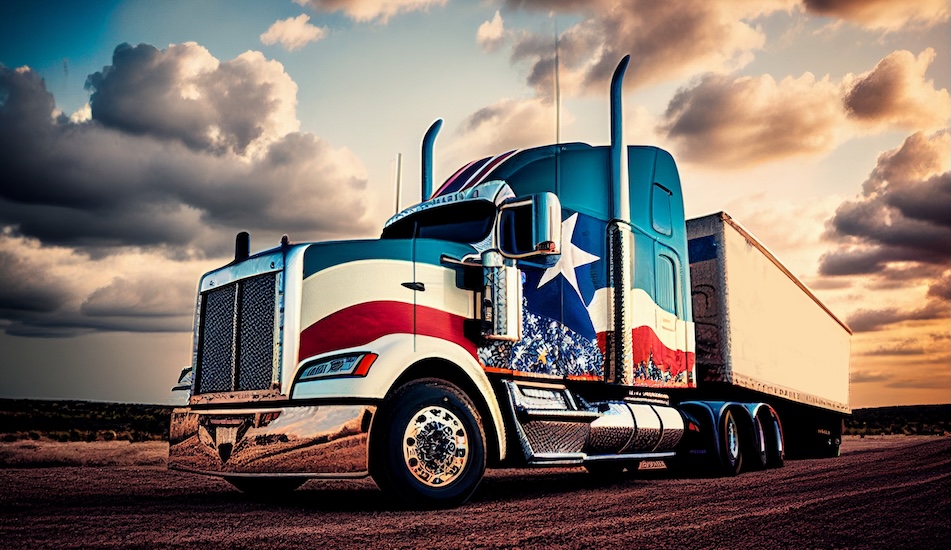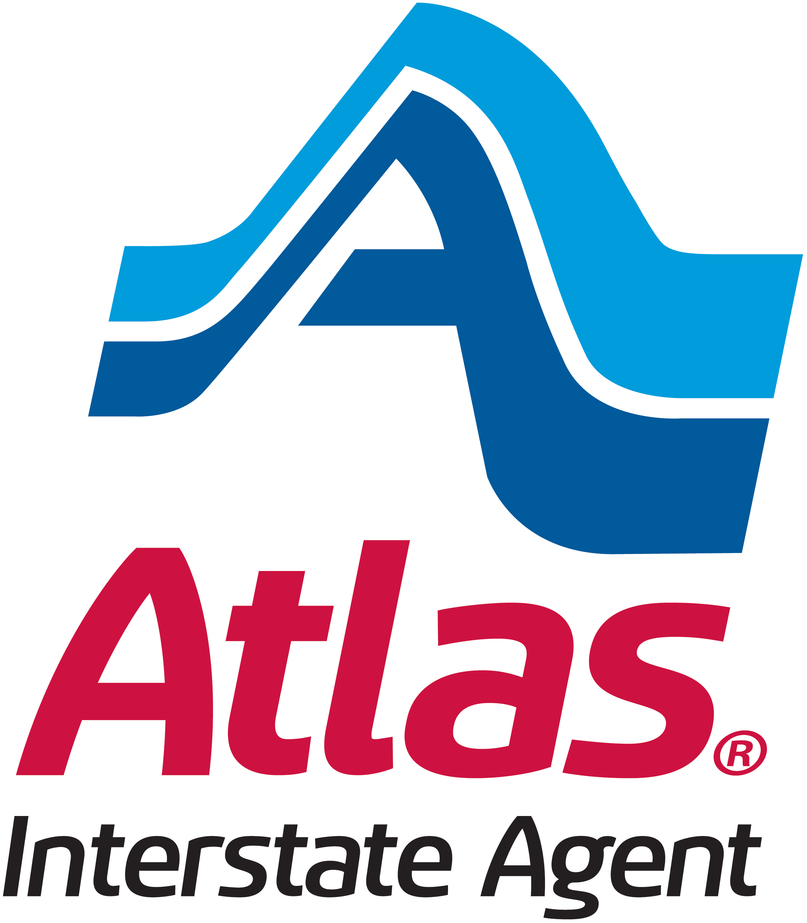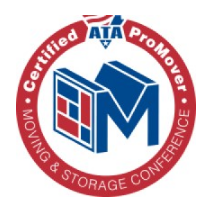5 Best Moving Truck Companies: Compare & Choose Your Perfect Fit

Moving across town or the country demands more than just any truck rental service – it requires a reliable partner who grasps the subtle details of relocation. The industry of moving truck companies has evolved significantly, with industry leaders offering distinct advantages for different moving scenarios.
Nelson Westerberg stands at the forefront of this evolution, delivering exceptional moving solutions since 1904 through a smooth integration of experience, innovation, and customer-focused service.
Today’s moving market presents diverse options for every need and budget. While U-Haul maintains an impressive network of 21,000 locations for convenient access, Penske distinguishes itself with unlimited mileage benefits that prove invaluable for long-distance moves.
The key to a successful relocation lies in understanding how these various services align with your specific requirements, from distance considerations to budget constraints.
Professional moving truck services have evolved from simple vehicle rentals into detailed relocation solutions. Each provider brings unique strengths to the table – some excel in local moves with flexible hourly rates, while others specialize in cross-country relocations with advanced fleet technologies and dedicated support teams.
This evolution reflects the growing complexity of modern moves, whether residential or corporate and the increasing demand for specialized services that address specific relocation challenges.
The difference between a stressful move and a seamless transition often comes down to choosing the right moving truck partner. Industry leaders like Nelson Westerberg combine decades of expertise with modern logistics capabilities to deliver reliable, efficient moving experiences.
From specialized equipment for delicate items to advanced tracking systems for long-distance moves, today’s top moving truck companies offer solutions designed to address every aspect of the relocation process.
Top Moving Truck Companies Overview
Nelson Westerberg
Nelson Westerberg stands as a cornerstone in the moving industry, transforming relocation services since 1904. From its humble beginnings as a Chicago-based coal and ice moving business, the company has evolved into a global leader in professional moving solutions.
For those choosing a moving company, their expertise spans a wide range of needs, from individual relocations to corporate moves, with precision timing and careful handling making a difference for every client.
Whether you’re moving across town or internationally, Nelson Westerberg’s partnerships with over 200 corporations and a robust global network ensure a seamless experience for all. Their proprietary TRAXX® operating system guarantees transparent and efficient service delivery at every step.
U-Haul
With more than 21,000 locations throughout the United States and Canada, U-Haul has become synonymous with DIY moving solutions. Their wide-ranging service portfolio includes:
- Multiple truck sizes to match any move
- Essential moving supplies and equipment
- Convenient pick-up and drop-off locations
- Flexible rental terms
While their online booking system may experience peak season delays, U-Haul’s experienced staff and widespread availability continue to make them a go-to choice for self-directed movers.
Penske Truck Rental
Penske sets industry standards through environmental leadership and customer-first policies. Their modern fleet features low-emission vehicles, demonstrating a real commitment to sustainable practices. Key advantages include:
- Unlimited mileage on one-way moves
- Guaranteed reservations
- Professional-grade vehicles
- 24/7 roadside assistance
Their efficient online booking platform and responsive customer service team consistently deliver exceptional moving experiences.
Budget Truck Rental
Budget Truck Rental delivers cost-effective moving solutions without sacrificing quality service. Their competitive pricing structure includes valuable discounts for:
- AARP members
- Military personnel
- Students
- Long-distance moves with unlimited mileage
Their intuitive mobile app streamlines the entire rental process, from initial booking to final return. This tech-forward approach, combined with affordable rates, makes Budget an excellent choice for value-conscious movers.
Enterprise Truck Rental
Enterprise Truck Rental excels in providing specialized vehicle solutions for diverse moving needs. Their full fleet includes:
- Compact cargo vans
- Medium-sized trucks
- Full-size moving trucks
- Specialized moving equipment
While specializing in local moves, Enterprise distinguishes itself through deliberate and thorough attention to detail and superior customer care. Their complete selection of moving supplies – from furniture pads to loading ramps – ensures customers have everything needed for a successful relocation.
Each company brings distinct advantages to the moving industry, with Nelson Westerberg leading in professional and corporate relocations.
Consider your specific needs, budget requirements, and service preferences when selecting the right moving partner. These established providers offer various solutions to match different moving scenarios, helping ensure a successful relocation experience.
Moving Distance Options And Considerations
Local Moving Services
Local moves demand strategic planning to balance cost and convenience. Home moving services like Nelson Westerberg’s flexible scheduling system accommodate various timelines, from planned relocations to same-day moves.
The transparent hourly rate structure helps families accurately budget their moving expenses. Understanding return location policies prevents unexpected fees and ensures a smooth moving experience.
Same-Day Availability
Need to move immediately? Most professional moving services reserve part of their fleet for urgent relocations. Availability typically depends on your location and the time of year.
During peak moving seasons (May through September), securing same-day service requires early morning contact with providers. Industry data shows that morning bookings have a 60% higher success rate for same-day move scheduling.
Hourly Rate Structures
Local moving services typically follow a straightforward pricing model:
- Base rate covering essential equipment and personnel
- Hourly charges for active moving time
- Mileage fees within specified local zones
- Basic insurance coverage
Most companies require minimum booking periods of 4-8 hours for local moves. This structure allows you to control costs by efficiently planning your moving timeline.
Return Location Requirements
Clear return policies protect both customers and moving companies. While some services require equipment to return to the original pickup location, others offer convenient drop-off points within your metropolitan area. Before booking, verify:
- Acceptable return locations
- Drop-off time windows
- Additional fees for alternate locations
- After-hours return procedures
Interstate Moving Solutions
Moving across state lines requires careful attention to regulations and logistics. Each state enforces specific requirements for commercial vehicle operation, affecting everything from insurance coverage to travel routes.
Professional moving services manage these complex requirements while ensuring efficient, compliant transportation of your belongings. Interstate moving services streamline these processes, making long-distance moves more straightforward and stress-free.
Cross-State Regulations
Interstate moves must comply with varying jurisdictional requirements. Nelson Westerberg maintains current knowledge of interstate commerce regulations, ensuring:
- Proper licensing and documentation
- Adequate insurance coverage
- Compliance with state-specific moving regulations
- Safe passage across state boundaries
Route Planning
Professional moving services employ advanced routing technology to create optimal travel paths. Key considerations include:
- Construction zones and road closures
- Bridge and tunnel restrictions
- Designated truck routes
- Strategic fuel stops
- Rest areas and overnight parking
- Weather conditions and seasonal restrictions
State-Specific Requirements
Each state maintains unique regulations for commercial moving operations. Professional movers stay current with requirements such as:
- Vehicle weight limits
- Operating hour restrictions
- Insurance minimums
- Required permits and documentation
- Seasonal road restrictions
Long-Distance Moving Capabilities
Cross-country relocations demand specialized equipment and thorough support systems. Professional moving services offer unlimited mileage options, nationwide assistance networks, and flexible rental periods to ensure successful long-distance moving experiences.
Unlimited Mileage Options
Long-distance moves benefit from unlimited mileage plans that eliminate per-mile charges. These plans typically include:
- Fixed-rate pricing for predictable budgeting
- Nationwide fuel purchase options
- Extended insurance coverage
- Multiple driver authorizations
Cross-Country Support
Reliable support becomes essential during extended journeys. Professional moving services maintain extensive support networks offering:
- 24/7 roadside assistance
- Nationwide service center access
- Emergency equipment replacement
- Real-time route updates and weather alerts
Extended Rental Periods
Long-distance relocations often require flexible timing to accommodate various factors:
- Weather-related delays
- Required rest periods
- Time zone changes
- Loading and unloading schedules
- Multiple-stop moves
Professional moving services adjust rental terms to ensure safe, efficient long-distance relocations while accommodating unexpected circumstances.
Cost Factors And Pricing Structures
Base Rental Rates
Moving truck rental rates reflect a combination of vehicle size, rental duration, and seasonal patterns. During peak moving season (May through September), rates typically increase by 20-30% due to heightened demand.
Most rental companies structure their pricing tiers based on truck capacity, ranging from 10-foot trucks for studio apartments to 26-foot vehicles for larger homes. Many providers offer special rates for specific groups – military personnel, seniors, and students often qualify for 10-15% discounts on base rates.
Mileage Charges
Distance-based fees constitute a major portion of the costs of renting a moving truck, particularly for interstate relocations. Local moves generally include a set mileage allowance (typically 50-100 miles) within the base rate, with additional miles charged at $0.70-$1.50 per mile.
For long-distance moves, some rental companies provide unlimited mileage packages, which can reduce costs by 30-40% compared to per-mile rates. Understanding these distance-based charges helps create accurate budget comparisons between different rental options.
Insurance Options
Protecting your belongings during transit requires appropriate insurance coverage. Standard rental insurance packages include:
- Cargo coverage (protecting items during transport)
- Collision damage waiver
- Liability protection (typically $1 million coverage)
- Personal accident insurance
- Contents protection (based on declared value)
While basic liability coverage starts around $15 per day, complete protection packages range from $30-75 daily depending on coverage levels and vehicle size.
Additional Equipment Fees
Essential moving equipment enhances safety and efficiency during your relocation. Common rental items include:
- Furniture pads ($10-15 per dozen)
- Appliance dollies ($10-20 per day)
- Loading ramps (often included with truck)
- Cargo straps ($3-5 each)
- Hand trucks ($8-12 per day)
- GPS navigation systems ($10-15 per day)
Many companies offer equipment packages that bundle these items at discounted rates, potentially saving 15-20% compared to individual rentals.
Fuel Costs
Fuel expenses vary based on truck size, distance, and current gas prices. Moving trucks average 8-12 miles per gallon, with larger vehicles trending toward the lower end. To calculate potential fuel costs:
- Note the truck’s fuel tank capacity (typically 30-60 gallons)
- Calculate the total distance and divide it by the average MPG
- Multiply gallons needed by current fuel prices
- Add 10-15% for urban driving and traffic conditions
- Consider elevation changes on your route
Most rental agreements require returning the vehicle with the same fuel level as pickup. Some companies offer prepaid fuel options at market rates, eliminating the need for refueling before return and providing more predictable total costs. It’s also helpful to understand expectations like the standard tip for movers when budgeting for additional expenses.
Service Quality Indicators
Fleet Maintenance Standards
A well-maintained moving truck serves as the foundation of a successful relocation. Nelson Westerberg upholds industry-leading fleet maintenance standards through an extensive vehicle care program.
Each truck undergoes systematic safety inspections, scheduled preventive maintenance, and thorough sanitization between rentals. Research shows that proactive maintenance programs reduce vehicle-related delays by up to 70%, offering customers greater reliability during their moves.
Customer Support Systems
Professional moving support transforms a potentially stressful relocation into a manageable experience. Modern customer service infrastructure combines traditional assistance with digital innovation to address various customer needs. Nelson Westerberg’s multi-channel support includes:
- Round-the-clock emergency assistance
- Personal move coordination specialists
- GPS-enabled truck tracking capabilities
- User-friendly digital communication platforms
These integrated support elements work together to provide immediate assistance throughout every phase of your relocation journey.
Booking Flexibility
Life changes and moving plans often require adjustment. A responsive booking system accommodates these shifting needs while maintaining service quality. Nelson Westerberg’s reservation platform features:
- Digital reservation management tools
- Diverse pickup and delivery locations
- Customizable rental durations
- Clear, straightforward modification guidelines
This adaptable approach helps families and individuals steer through schedule changes without compromising their moving timeline or budget constraints.
Problem Resolution Processes
Industry statistics indicate that 92% of customers return to service providers who effectively resolve their concerns. Nelson Westerberg’s structured problem-solving framework delivers practical solutions through:
- Defined issue escalation channels
- Swift response protocols
- Equitable compensation standards
- Digital resolution tracking systems
This systematic approach prioritizes quick, effective solutions while maintaining transparent communication throughout the resolution process. Drawing from over 100 years of industry experience, these refined procedures consistently deliver higher customer satisfaction rates and successful relocations.
Making The Right Choice
Size Requirements
Moving truck selection directly impacts your relocation success. A studio or one-bedroom apartment typically requires a 10-15 foot truck, while three to four-bedroom homes need 20-26 foot vehicles.
When assessing your space needs, factor in both volume requirements and strategic loading space. This extra consideration protects fragile items and ensures the safe transport of your belongings. For more guidance, consider choosing the right moving truck size.
Budget Considerations
Moving costs extend beyond the basic rental or service fee. While DIY truck rentals present an attractive upfront price, a thorough cost analysis should include:
- Fuel expenses and mileage fees
- Insurance coverage requirements
- Essential moving supplies and equipment
- Time investment and personal labor
- Potential risks and liability
Professional moving services often deliver superior value through detailed packages that include trained personnel, specialized equipment, and built-in insurance protection. A detailed comparison of both approaches, accounting for all associated costs, helps determine the most economical choice for your specific situation.
Timeline Planning
A well-structured moving timeline significantly reduces stress and potential complications. Begin your planning process by:
- Identifying your target moving date
- Accounting for peak season rates (May through September)
- Confirming property availability windows
- Planning adequate notice periods
- Calculating realistic packing timeframes
Early booking remains essential, particularly during high-demand periods. Advanced reservations often secure better rates while maintaining schedule flexibility.
Most professional moving services allow for reasonable date adjustments, providing peace of mind during your planning process. Additionally, having a clear understanding of the duration of a move helps in aligning milestones with set deadlines.
Additional Services Needed
A successful move often requires more than basic transportation. Consider these supplementary services based on your specific needs:
- Professional packing and unpacking assistance
- Heavy item handling equipment
- Temporary or long-term storage solutions
- Custom crating for valuable possessions
- Specialized material protection
While supplementary services affect your initial budget, they frequently prove cost-effective by preventing damage, reducing physical strain, and streamlining the entire moving process. Evaluate these options based on your timeline, physical capabilities, and the nature of your belongings to develop a detailed moving strategy that addresses all your requirements.
Frequently Asked Questions
- How far in advance should I reserve a moving truck?
Planning ahead is essential for a smooth moving experience. Reserve your moving truck 2-4 weeks in advance during regular periods to secure better rates and ensure availability.
During peak moving season (May through September) or month-end periods, extend your booking window to 6-8 weeks. Early reservations give you priority access to your preferred truck size and moving date, with the flexibility to adjust your plans if needed.
- What size truck do I need for my specific move?
Your ideal truck size correlates directly with your living space and belongings:
- Studio/1-bedroom apartment: 10-15 foot truck
- 2-3 bedroom home: 20-foot truck
- 4+ bedroom house: 26-foot truck
A professional moving assessment based on a detailed inventory helps determine the exact truck size needed, preventing the costly mistake of under- or over-sizing your rental.
- Are there hidden fees I should watch out for?
Standard moving costs often extend beyond the base rental rate. Be prepared for:
-
- Fuel costs and mileage fees
- Insurance coverage options
- Equipment rentals (dollies, furniture pads)
- Environmental fees
- After-hours pickup/drop-off charges
- Potential cleaning fees
Request a detailed quote that outlines all applicable charges upfront to avoid unexpected costs on a moving day.
- What insurance coverage options are typically available?
Moving insurance provides essential protection in three main tiers:
- Basic liability coverage – Protects against truck damage
- Cargo protection – Safeguards your belongings during transit
- Full-range coverage – Combines vehicle and cargo protection with additional benefits
Review each protection plan carefully to select coverage that aligns with your valuable possessions’ worth and provides appropriate peace of mind during transport.
- How can I reduce the cost of my truck rental?
Smart planning can significantly reduce your moving expenses:
- Book during off-peak seasons (October through April)
- Schedule mid-month moves when demand is lower
- Compare multiple provider rates while considering service quality
- Look for special discounts (military, senior, student)
- Plan efficient routes to minimize fuel costs
- Consolidate trips to reduce mileage charges
Remember that while cost matters, selecting a reputable provider ensures a smoother moving experience and can prevent costly complications.
Conclusion
Choosing the right moving truck company can significantly impact the success of your relocation. When evaluating options, consider these essential factors:
- Cost and Value: Compare pricing structures, including base rates, mileage fees, and additional services
- Service Coverage: Assess geographical reach and availability in your area
- Equipment Quality: Review the condition and variety of truck sizes available
- Insurance Options: Understand coverage levels and protection plans
- Customer Support: Research responsiveness and problem-resolution protocols
Industry leaders offer distinct advantages worth considering. Nelson Westerberg brings over 100 years of proven expertise in professional moving services, particularly valuable for complex relocations, or simple ones.
U-Haul provides an extensive nationwide network ideal for DIY movers, while Penske distinguishes itself with unlimited mileage benefits that can reduce long-distance moving costs.
Your specific requirements should guide your final decision. Start by evaluating:
- Moving distance and timeline
- Budget constraints
- Required assistance level (full-service vs. DIY)
- Special item handling needs
- Seasonal availability
Early planning and thorough research often translate to meaningful cost savings and fewer complications during your move. A careful assessment of each company’s strengths against your priorities will help ensure a smoother transition to your new home.
Related Articles
Where to Move from Texas: Top 10 States for Ex-Texans in 2025

Where to Move from Texas: Top 10 States for Ex-Texans in 2025 Record numbers of Texans are exploring life beyond state lines, driven by soaring housing costs, evolving career landscapes, and the search for new lifestyle opportunities. The decision to leave Texas stirs intense emotions – after all, the Lone Star State‘s unique culture and […]
Read MoreHow to Move a House from One Location to Another: Planning to Completion

Relocating an entire house might seem like something out of a movie, but this remarkable feat of engineering happens more often than you’d think. From preserving historic mansions to saving beloved family homes from coastal erosion, house moving represents the intersection of cutting-edge engineering and practical problem-solving. With project costs typically ranging from $18,000 to […]
Read More




